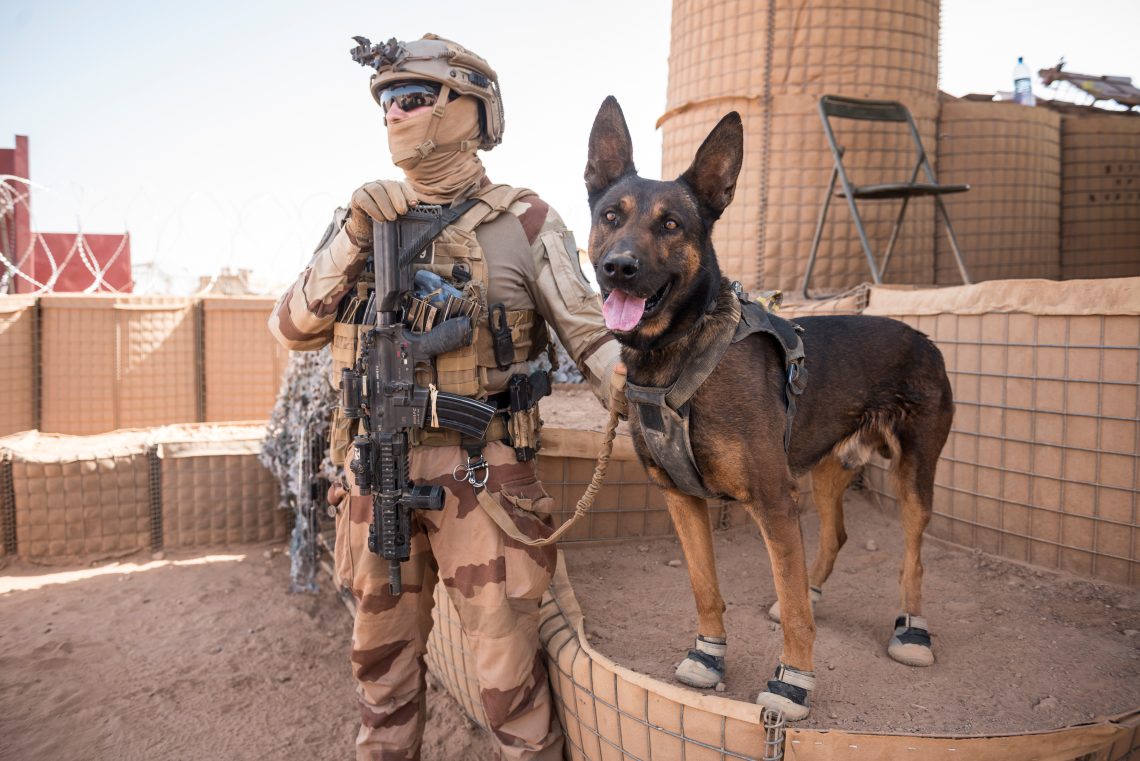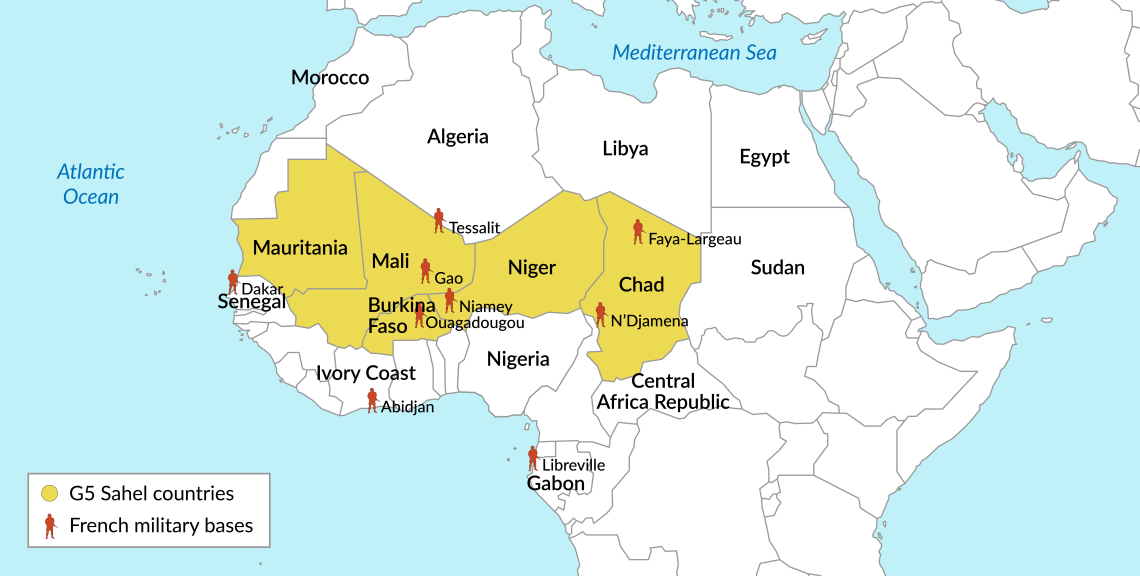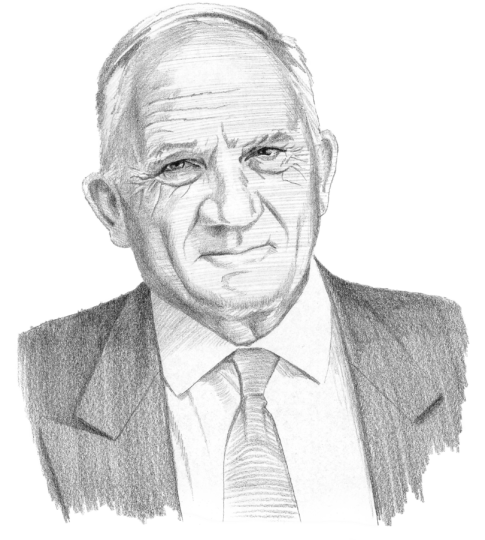France’s strategy in the Sahel
France was hoping to bring democracy to the Sahel region but instead has gotten bogged down in a military conflict with no end in sight. French forces and local governments could regain the upper hand against terrorist groups with the right strategic moves.

In a nutshell
- France’s military strategy has hit a dead end in the Sahel
- The coup in Burkina Faso could destabilize the volatile region
- The unstable political situation allows jihadism to spread
Operation Barkhane was set up on August 1, 2014. The French army wanted to reinvest in the Sahel (in Burkina Faso, Mali and Niger), from which it had retreated after the independence of countries in the region. But, eight years after the spectacular reconquest of Timbuktu against jihadists in the Sahara, the French military operation is running out of steam, undermined by an unstable political situation in Ouagadougou, Bamako and Niamey.
Today, France is bogged down in the Sahel, while tribes and ethnic groups are gaining the upper hand over governments. There is no solution in sight to the conflict, which began more than 30 years ago. There are multiple threats: economic and agricultural crises, political corruption and ethnic tension, rampant poverty and worsening social injustice. Terrorism is an integral part of all the trafficking that plagues this immense space. Jihadist groups are earning considerable amounts of money smuggling drugs, goods and people.
Fraying ties
During the latest Africa-France summit in Montpellier on October 8, with no African head of state present, President Emmanuel Macron was reduced to exchanging ideas with members of civil society groups. The G5 Sahel – a cooperation framework between Burkina Faso, Chad, Mali, Mauritania, and Niger, in partnership with France – held its 2020 summit through video conferencing.
In Montpellier, France pledged to grant “unprecedented financial support for the African continent.” A fund of 30 million euros will be created to support African civil society to promote democracy. France’s presence in Africa now boils down to a benevolent speech and a few million euros – a mere drop in an ocean of nebulous social programs.
The current state of France’s African diplomacy is the exact opposite of its initial ambitions: it is more militarized than ever.
French diplomacy has not renounced former President Francois Mitterrand’s appeal to democratize its African partners. Over the last two decades, France’s presence in West Africa has become a form of democratic paternalism – but this attitude, even when dressed up as a partnership of equals, is now being rejected in the region.
Held back by principles
The current state of France’s African diplomacy is the exact opposite of its initial ambitions: it is more militarized than ever. Initially focused on community intervention, the French presence now revolves around the fight against terrorism. The two most stable members of the G5 Sahel are also the most authoritarian: Mauritania and Chad. In short, France’s attempt to bring Western-style democratization to Africa has failed.
Paradoxically, Paris also remains engaged in countries where democratization has not started (Cameroon, Chad, Congo, Gabon, Guinea, Mauritania and Togo). Wishing to present an image that it engages equally with all countries, France is now hesitant to showcase its ties to old colonies and instead flaunts its relations with English-speaking African states – including authoritarian ones.
The G5 Sahel includes three politically fragile countries where security threats are concentrated: Burkina Faso, Mali and Niger. In the latter, some 600 people in the west of the country have been killed by jihadists or intercommunal violence since the start of the year. On December 4, five villages around Tillaberi were attacked by dozens of fighters on motorcycles.
In Mali, the interim president, Colonel Assimi Goita, is trying to find his place in the regional diplomatic system. In Burkina Faso, on January 24, 2022 the army announced it had ousted President Roch Marc Christian Kabore, suspended the constitution and dissolved the government and parliament.
Facts & figures
French military bases in Africa

Tired of counterinsurgency
There can be no tactical military solution in a counter-guerrilla war or a war of occupation when the enemy has infiltrated the civilian population across several borders. The solution is political: the French army can only be effective if it is backed by strong political power, facing a clearly identified enemy. This is a necessary condition for a successful external intervention.
As a guarantor of the democratization of Africa, France had to undertake military interventions in the Central African Republic, Ivory Coast and Mali. Most often this presence has been used for community intervention, for example as a neutral riot police force at times of unrest. But armies are made for war, with a clearly defined enemy – they are ill-suited to police operations. French troops feel a certain weariness in the face of these missions with no tactical outcome.
Ending Barkhane
On June 10, 2021, a week after a new military coup in Bamako, President Emmanuel Macron announced the end of Operation Barkhane “as an external operation to allow instead for an operation of support and cooperation with the armies of the countries of the region that so wish.” The Malian authorities described the withdrawal as “being dropped mid-flight.” Mr. Macron’s declaration arguably came at the wrong time, while Mali was trying to bolster its own army. The Russian mercenaries from the Wagner Group could have taken advantage of the situation. France therefore very quickly reassured Mali that it would continue providing military aid and resumed joint operations. Without the Malian Armed Forces, Barkhane’s retreat maneuver to the south would have likely failed.
France would be better off investing all its resources in security and doing away with its “politico-humanitarian” inclinations.
It was disturbing when people in Niger and Burkina Faso attacked logistics-oriented military convoys at the end of November. However, in Mali, such attacks did not occur. Similarly, protests against the French presence have multiplied in Burkina Faso and Niger this year.
Military engagement in Burkina Faso would therefore be very risky, possibly leading to a vicious circle of military occupation. President Kabore never managed to establish his political authority there after the overthrow of Blaise Compaore. Now, after the coup, the country’s slow descent into civil war will accelerate, allowing jihadist groups to penetrate the north.
Scenarios
To counter the chaos in Burkina Faso, Paris would have to quickly relaunch its military cooperation with Bamako and promise strategic support to Colonel Goita in exchange for maintaining a French military presence in Gao. The withdrawal from northern Mali, planned for more than two years, is being carried out in good order and with a certain discretion.
By normalizing its relations with the new power in Bamako, Paris is trying to pull the rug out from under Russia and its mercenaries from the Wagner Group. The political transition could be similar to the current French cooperation in Chad with General Mahamat Deby, who succeeded his long-reigning father Idriss Deby after he died last summer. Once the situation stabilizes in Bamako, the synergy between the Malian forces and the French forces could grow. Then the G5 Sahel would be able to handle jihadist attacks on the borders with Niger and Burkina Faso.
This strategy’s success will depend on the stability of French bases in Dakar, Abidjan and N’Djamena. These three sea and air bases allow for intervention in any theater of operation. Meanwhile, if French forces continue major maneuvers in the Sahara-Sahel region, armed terrorist groups will find it easier to whip up hostile sentiment among their countries’ populations against the foreign military.
Strengthening the French presence in Niger would require President Mohamed Bazoum to consolidate the political situation and to place the operational command post of the special forces in Gao, Mali instead of Niamey, Niger. The new iteration of Operation Barkhane – which will have to be renamed – could continue to train local troops but this will only be possible with the constant support of the governments concerned.
The European military operation assisting the Malian Army, the Takuba Task Force, currently consists of Franco-Estonian and Franco-Czech subgroups that oversee light reconnaissance and intervention, as well as a rapid reaction force armed by Sweden. General Laurent Michon, commander of the Barkhane force, remains Takuba’s “operational controller.” This French-European showcase, if it were to expand, would reinforce the feeling of a Western military recolonization of Africa.
Over 2017-2023, budgetary support from the European Union to the G5 Sahel amounts to 284.5 million euros. This budget is earmarked for civilian programs. Politically, the support of a European coalition can be beneficial. But in practice, it consumes a lot of time and energy for modest results. Only material support in the transport and air supply sectors is really desirable. As for MINUSMA, the United Nations peacekeeping force, it only increases the unpopularity of the foreign presence and the political complexity of the external operation for the population, without real operational and strategic gain. On the other hand, battalions from friendly countries (Mauritania, Senegal and Chad) accompanied by French advisors and liaison officers have proved effective.
The French military presence in West Africa is essential to the global role that France intends to play. But, amid strong geopolitical, economic, religious and demographic tensions, France would be better off investing all its resources in security and doing away with its “politico-humanitarian” inclinations. There will be peace in Africa only if Africans build their own political system.








